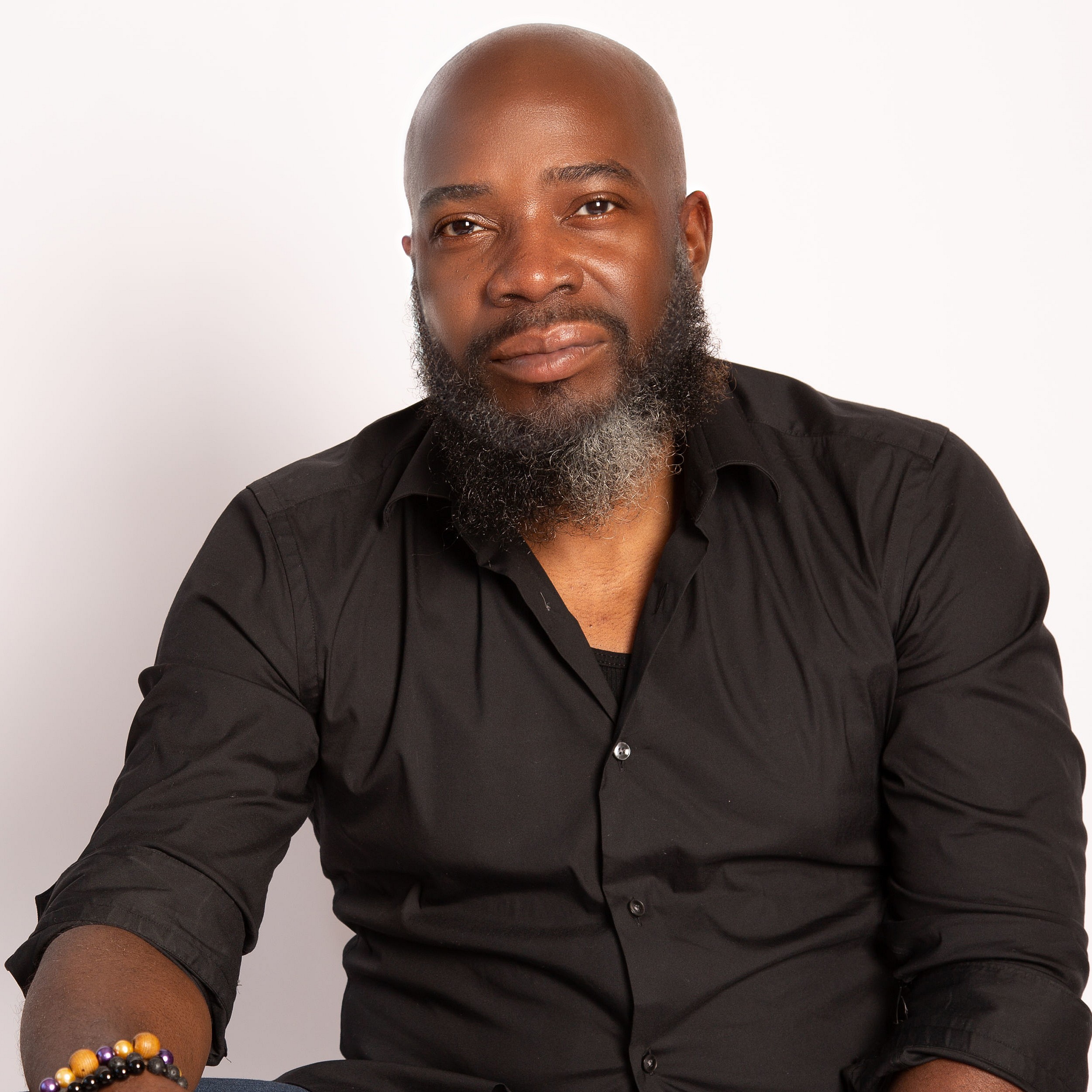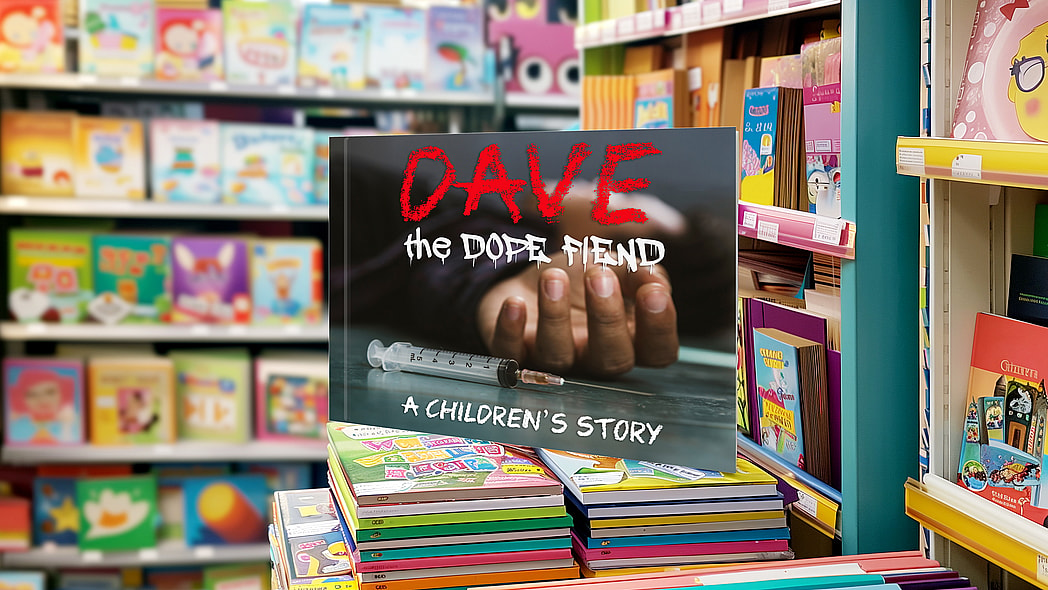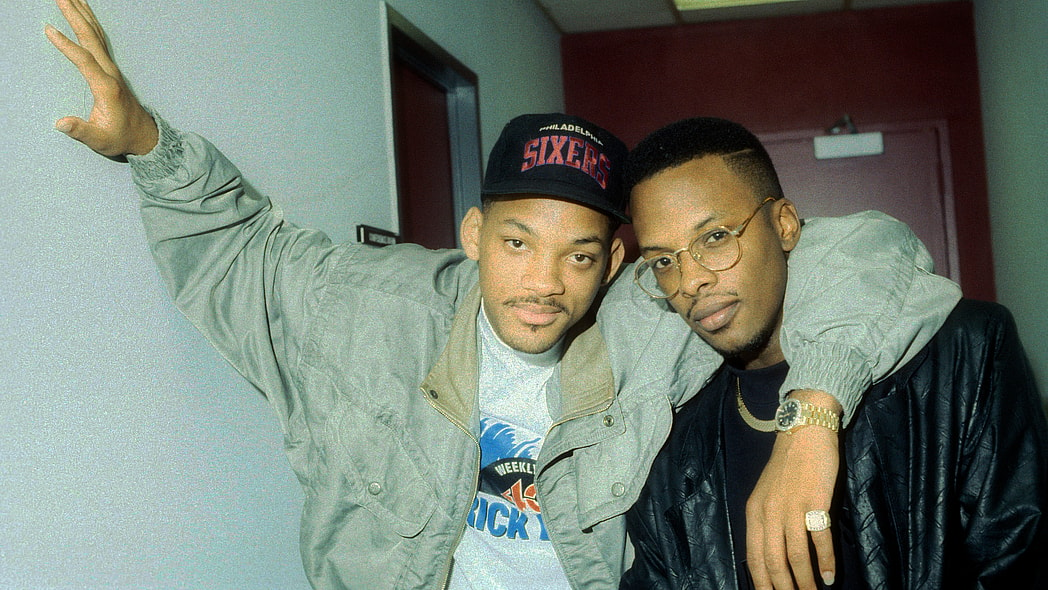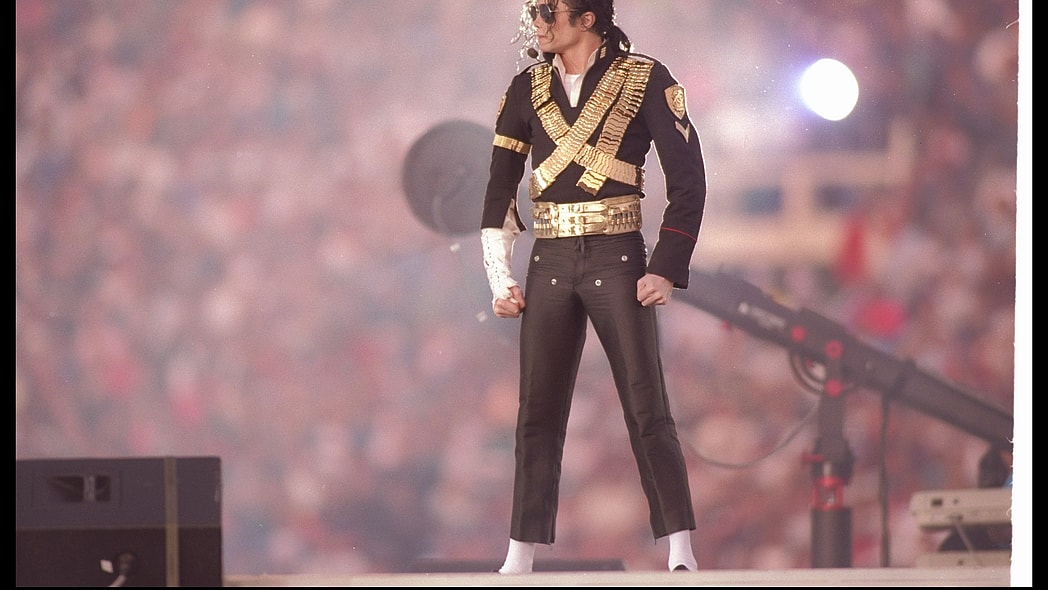Editor’s note: The following article is an op-ed, and the views expressed are the author’s own. Read more opinions on theGrio.
Along with the infamous jester Boo Boo the Fool and the much-despised slavemaster Willie Lynch, Dave the Dope Fiend is perhaps one of the most iconic fictional characters in Black America.
Sparked by a singular mention in Slick Rick’s 1989 hit, “Children’s Story,” the name alone has inspired exultation and audience participation in nightclubs and parties for generations. While the iconic song about a teenager whose choices land them in trouble with the law remains part of hip-hop canon, there are unanswered questions that have lingered in the minds of hip-hop fans for years.
Did he really not know the meaning of water or soap? How did he start shooting dope? Why would he offer a spanking shotgun to a complete stranger? Most importantly, what happened to him and the stickup kid he helped?
Well, we found the answers.
After an exhaustive search, theGrio’s Black Music Month investigative team (basically, me) tracked down Dave the Dope and the other characters involved in this iconic hit to find out what really happened on that fateful day. This is the almost true story of Dave the Dope Fiend.
All tucked in?
Here we go.
Once upon a time, not long ago …
Not only has Dave the Dope Fiend never used dope, perhaps more than anyone in America, he knows the meaning of water or soap.
Born in 1975, David Darwin Dauphin was a straight-A student who spent his formative years trying to escape poverty. Before crack hit New York, the Bronx River Housing was a place where people wore pajamas and lived life slow. Dave was the quintessential “wiz kid” everyone in the neighborhood protected.
According to nonexistent transcripts reviewed by theGrio, Dauphin’s high grades and standardized test scores earned him admission to the Bronx High School of Science, a public academy for high-achieving students known for producing some of America’s brightest minds.
Every day, Dave traveled more than an hour each way to attend Bronx Science. After a year, it was clear he was struggling to adjust. “It wasn’t the travel; I could handle the academics — the students at Bronx Science weren’t any smarter than the kids at my old school.” Dauphin told theGrio. “I was just poor. I didn’t have the clothes and the shoes like my classmates. Sometimes, my mom couldn’t pay our water bill so I couldn’t wash my clothes or shower before school. The cool kids teased me about it a lot.” Fortunately, Dave didn’t let his circumstances affect his future. He had a plan.
He was going to win the 1984 Bronx Science Fair.
Recommended Stories
At a school that produced nine Nobel Prize winners, the Bronx Science High School Science Fair is one of the most competitive contests in K-12 academia. Inspired by his classmates’ bullying, Dave created “So Fresh, So Clean” — a proprietary chemical process that allowed poor people to clean their bodies, even without access to water or soap. All he needed was a way to pay for the testing and materials.
One day, a stranger approached Dave and offered him a job tutoring adult chemistry students. It seemed like the perfect way to provide for his family, and it would actually help him win the science fair.
Growing up in an environment where people wore pajamas and lived life slow, Dave had no idea he was actually teaching drug dealers how to cook crack cocaine. In his naive mind, he was tutoring kids who were as interested in chemistry as he was. Every day, Dave went to the trap house on the top floor of an abandoned building and explained chemical reactions, acid-base solutions and how to use bunsen burners. He spent the rest of the time in the well-equipped laboratory studying, refining his invention and preparing for the science fair.
On the day of the big science fair, Dave stayed up all night refining his project. He had figured it all out. He didn’t even bother to shower before giving his big presentation. Everything at the science fair had gone perfectly. (Aside from when the judges’ panel asked him to compare the cost of Daves Dry Wash to the price of water and soap, causing one of his classmates to yell out: “He doesn’t know what that is!”).
Dave’s Dry Wash came in first place by a landslide.
Dave didn’t even wait for the trophy. He bolted to the trap house to tell his “employers” that he was retiring. The dope boys were elated that Dave had achieved his dream and would finally “get out of the hood.” After a few minutes of celebration, they left Dave alone to collect his equipment. He was almost finished packing everything up when he heard a knock at the door.
Dave assumed one of his former employers was coming to retrieve a shotgun that the “security guard” had left in the corner of the trap house to protect the “lab.” Who else would be running up the stairs to the top floor of an abandoned building? Dave opened the door without even looking through the keyhole.
It was Ty the Stickup Kid.
A little boy misled
Tyson James, a shy but athletic third grader who mostly kept to himself, lived across the hall from Dave. Because Ty struggled with dyslexia — a diagnosis he discovered during his incarceration — he learned how to fight at an early age. That’s why the schoolyard bullies at his elementary school knew not to retaliate when Tyson intervened in a roasting session on his third-grade classmate and neighbor.
“His name is (smack!) … David (smack!) … Dee (smack!) … Dauphin (smack!),” announced Ty, open-hand slapping the schoolyard bullies across the back of the neck. “It’s not Dave the Dope Fiend.”
Bound by proximity, poverty and a desire to escape the lesser of the two Americas, the boys quickly became best friends. They would even swap clothes to make their wardrobes appear more diverse. After Dave’s transfer, Ty was recruited by a stickup crew. When Dave found out his friend was robbing old folks and taking a dash, Ty quit the crew.
“I would never be stupid enough to rob a DT undercover,” said Ty, using the common term for an undercover detective. “I was out of that life. It’s not like I couldn’t stop or I had a disease.” Instead, Ty claimed he was framed and assaulted by a corrupt police officer.
“He grabbed me by the arm and told me to keep still; there was no need for static,” Ty explained. “I was going to comply but he punched me in the belly and gave me a slap, so I cold dashed, and I ran around the block.”
Thus began one of the most iconic chases in hip-hop history.
Ty also says Dave was just in the wrong place at the wrong time. When Ty knocked on the door of the trap house, Dave just smiled and said: “I won the science fair.” He expected Ty to be as elated as everyone else but immediately sensed something was wrong.
“I need bullets,” Ty replied. “Hurry up, run.”
Dave didn’t even flinch. Instead, he quickly pointed Dave toward the back door and handed Ty a spanking shotgun. The cops burst in, threw Dave to the ground and slipped on the handcuffs. Minutes later, in the middle of this madman’s dream, Dave heard gunshots.
“We shot the kid,” said a voice on the police radio. To this day, Dave still hears the screams.
“To be clear, it wasn’t Dave’s shotgun or his bullets,” he added. “First of all, I didn’t even shoot at them! According to the police reports, they scattered after I rat-a-tat-tatted. But during the trial, the jury discovered that they just made that part up! Shotguns don’t even rat-a-tat-tat.”
Ty was sentenced to three consecutive life sentences for assaulting police officers, strong-arm robbery, resisting arrest, auto theft and reckless endangerment. Because prosecutors alleged that Dave was Ty’s accomplice, he was charged with the same crimes as Ty, along with RICO charges for the drug operation. “I don’t blame Ty,” Dave explained. “My life is the result of the choices I made. I chose to work in a trap house. I chose to tell Ty where the gun was.”
While Dave was resigned to spending the rest of his life in jail, his cellmate, Ty, was consumed with overturning their guilty verdict. They received a second chance thanks to his friend’s dedication to true justice and both men’s commitment to making sincere amends.
“I never accepted the idea that laws were stern and justice stood,” Ty told theGrio. I begged every attorney to take Dave’s case. Unfortunately, no one would…”
Until Lakisha came along.
Not just another story about the wrong path
“On April 21, 1988, witness Jane Doe was walking home when she was held hostage by the suspect in question,” reads a police witness statement reviewed by theGrio. “The armed suspect pulled out an automatic weapon, held it to Jane Doe’s head, announced that the gun was filled with lead and warned the responding officers to back off or, quote: ‘Honey here’s dead.’ Noting that the hostage was pregnant, officers complied.”
The statement continues:
After pleading for the life of her unborn child, Doe began experiencing labor pains. Officers helped the abductee escape and rushed her to the hospital, thereby losing the suspect. Officers resumed pursuit.
Upon further questioning, Doe identified suspect Tyson James and accomplice Dave the Dope Fiend.
When attorney Lakisha Holmes received a letter from inmate Tyson James, she instantly recognized the story. She knew all the details. The fact that she grew up in the Bronx River Homes had nothing to do with it, nor did the fact that Lakisha graduated from Bronx Science before heading to Spelman and Howard Law School. Her birthday was the spark.
On April 21, 1988, less than six hours after David Dauphin’s triumphant science fair victory and Ty the Stickup Kid’s life-altering abduction, “Jane Doe” welcomed her new daughter into the world.
Lakisha always thought her mother was joking around when she insisted she was the “pregnant lady” in one of the most-played songs on Black radio. Dave’s letter was proof her mother was telling the truth.
Lakisha called her mother, who revealed that she never identified Ty as her abductor, and, of course, she never implicated Dave. Multiple witnesses testified that only people from outside their Bronx neighborhood would ever refer to Dauphin as “Dave the Dope Fiend.” Together, they uncovered the falsified police reports and exposed the truth. Lakisha’s mother even found her original witness statement, which corroborated Ty’s claims that he was unarmed when the police shot him.
“They didn’t have to shoot that boy,” Doe said in her original statement, “Deep in his heart, he knew he was wrong.”
After three decades in prison, an appeals court overturned the convictions. In their decision, a three-judge panel cited police corruption, falsified evidence and witness tampering. To settle a subsequent federal civil rights lawsuit, the NYPD paid Dave and Ty $13.7 million for their wrongful convictions and agreed to fund a mentorship program in perpetuity.
Today, Dave and Ty are co-executive directors of Knock ’em Out the Box — a free program offered by the New York State Office of Children and Family Services. While programs like The Innocence Project and Project BUILD serve incarcerated adults, Knock ’em Out the Box is the first to offer counseling and legal justice for juvenile offenders in hip-hop songs. Former participants include Millie (accused of pulling a pistol on Santa), along with dozens of children whose parents just didn’t understand.
Asked if they harbored any ill feelings, they both acknowledged their regrets. “I apologize to everyone I hurt,” said Ty. “I reached out to the sister and told her I was sorry for aiming for her head — thank God I missed her. I sent an apology to the old man I knocked down — I swore I killed him. I wrote another and another and a sister and a brother.”
“I wish I knew that it was actually white people who don’t know the meaning of water or soap,” Dave lamented. “Imagine if we gave Jason Kelce an endorsement deal. Dave’s Dry Wash could have been huge!”
Good night.

Michael Harriot is a writer, cultural critic and championship-level Spades player. His NY Times bestseller Black AF History: The Unwhitewashed Story of America is available in bookstores everywhere.










